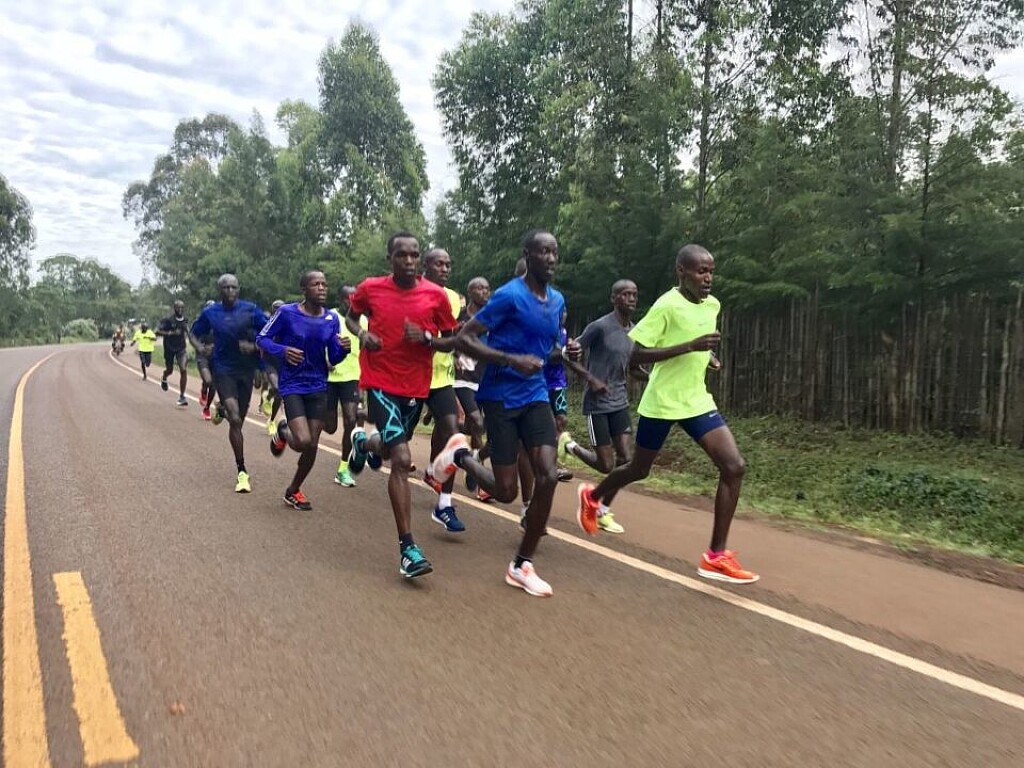Running News Daily
Running News Daily is edited by Bob Anderson. Send your news items to bob@mybestruns.com Advertising opportunities available. Train the Kenyan Way at KATA Kenya and Portugal owned and operated by Bob Anderson. Be sure to catch our movie A Long Run the movie KATA Running Camps and KATA Potato Farms - 31 now open in Kenya! https://kata.ke/
Index to Daily Posts · Sign Up For Updates · Run The World Feed
The top five questions from experienced runners in 2024
No matter how long you’ve been running, there’s always something new to learn. As our knowledge of effective training practices and proper nutrition improves and new technologies are introduced, even experienced runners will have questions. From how to bust through a fitness plateau to fuelling tips for long runs, here are experienced runners’ top questions for 2024.
1.-How do you overcome a fitness plateau?
If you’re putting in the work but the time on the clock isn’t budging, the first step is to assess your training. Are you going too fast on your easy runs? Are you recovering properly (i.e., getting enough sleep and nutrition) between workouts? If you don’t already have a training log, start filling one out after each run, and look for patterns.

Other ways to bust through a fitness plateau include:
Adding speed work, like intervals, tempo runs and hill workouts into your training plan

Adding two short, weekly strength training sessions to improve your power and efficiency
Starting training with a group to help you stay on track
Considering getting a coach to help you create a training plan that’s specific to your goals
2.- How can I avoid injuries as I increase mileage and intensity?
As you increase mileage and intensity, proper recovery and nutrition become even more important. Make sure you’re getting at least seven to nine hours of sleep each night, and always eat well to replenish calories burned after your runs. (Treats are OK!)
Other ways to prevent injuries include:
Get assessed by a physiotherapist to find out where your weak points are, to prevent injuries before they happen
Talk to a dietitian to figure out what (and how much) to eat before and after workouts
Add strength training
Consider getting a coach to help you periodize your training properly so you don’t do too much too soon
Include a stretching and mobility practice in your weekly routine to keep your joints and muscles moving well
3.- What are some advanced fuelling tips for long runs?
If you’re training for a longer race such as a half-marathon or marathon, you must practice your fuelling strategy ahead of time during your long runs. For most runners, it takes time for your body to get used to taking in fuel during a run, and trying that for the first time on race day can send you running for the porta potty. Other fuelling tips include:
Carbohydrate loading: In the days leading up to a race, it can be beneficial to increase your carbohydrate intake to maximize glycogen stores. Aim to consume around two to four grams of carbohydrates per kilogram of body weight per day before the race.
Pre-race meal: Consume a carbohydrate-rich meal two to four hours before the race starts. Aim for around one to four grams of carbohydrates per kilogram of body weight for this meal. Try different things (oatmeal, toast, cereal, etc.) to find out what works for you.
During the race: For longer races (e.g. marathons, ultras), aim to consume 30 to 60 grams of carbohydrates per hour, using energy gels, sports drinks, chews or easily digestible foods such as bananas or dates.
4.- Is there a difference between running outside and on the treadmill?
While many runners will argue that running outside is more fun, the treadmill is a great option when the outdoor conditions are dangerous or simply unpleasant. If you’re training for a race, though, it’s important to do most of your runs on the same surface you’ll be racing on–so unless you’re training for a treadmill race, do your best to get outside whenever possible.
5.- What other running gear would you recommend for someone who already has the basics?
If you already have the basics covered, consider investing in the following:
a smartwatch for data tracking
an extra pair of shoes to alternate between in training, to extend the life of your shoes
specific-use shoes, like a pair of racing shoes, winter running shoes if necessary, or trail shoes
a fuel belt or hydration vest for longer runs
by Brittany Hambleton
Login to leave a comment




